by Nazgul Baigabatova and Aliya Kashaganova, Zhetysu University (Kazakhstan)
Between 1 November and 30 December 2024, we completed a two-month secondment at Lund University, Sweden, as part of the MOCCA project. This research stay was an important milestone in our research career, providing a unique opportunity to deepen our knowledge, exchange experiences with colleagues and establish useful international connections.
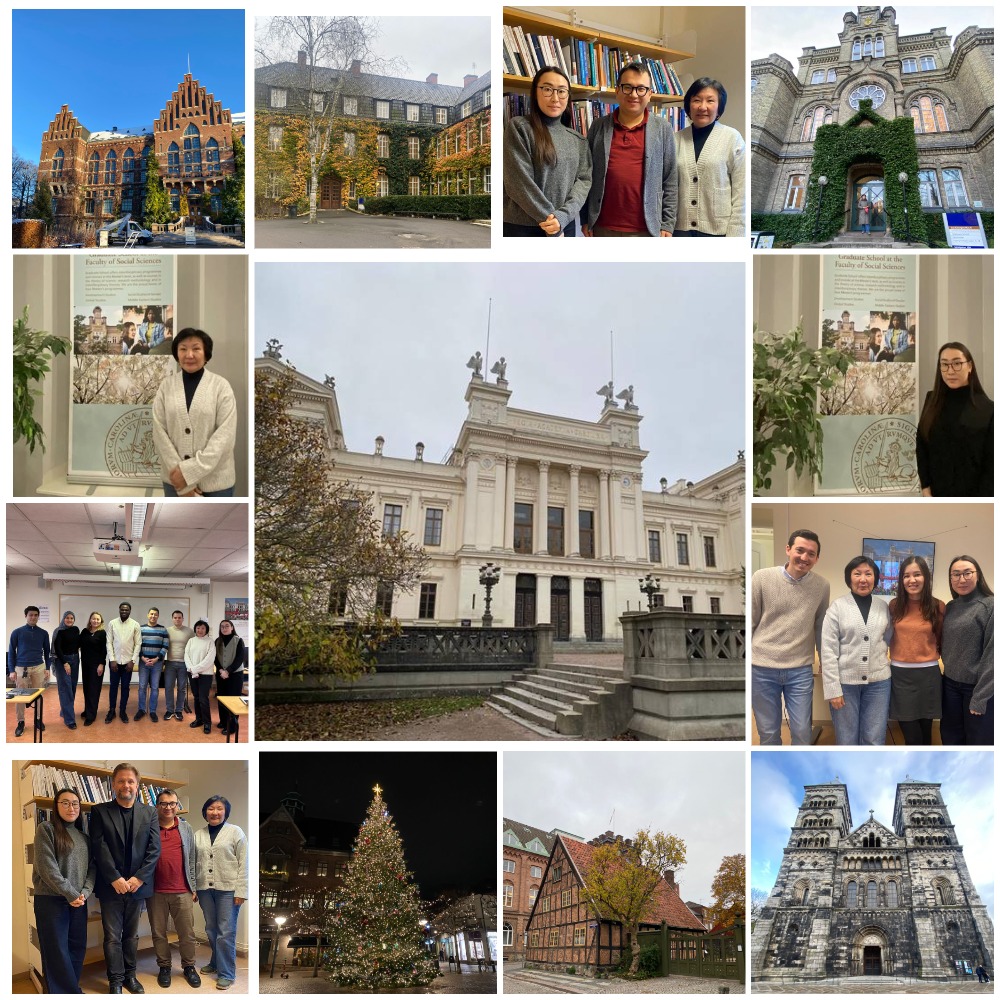 Ranked 75th in the QS World Rankings and 95th in the Times Higher Education 2024 rankings, Lund University is one of the world’s leading universities. Renowned for its interdisciplinary approaches and international co-operation, the university has been an inspiring place for us as researchers and has opened new horizons for academic endeavours.
Ranked 75th in the QS World Rankings and 95th in the Times Higher Education 2024 rankings, Lund University is one of the world’s leading universities. Renowned for its interdisciplinary approaches and international co-operation, the university has been an inspiring place for us as researchers and has opened new horizons for academic endeavours.
Lund University was founded in 1666 and has since become a symbol of academic success. This university attracts students and scholars from all over the world due to its reputation and achievements in various fields of study, including social sciences and humanities.
We interned in the Department of Sociology of Law, which is one of the leading departments in the university and is renowned for its interdisciplinary research in law, sociology and politics. This Department became an important centre for us, where we were able to learn about the latest methods and approaches in research practice, as well as to gain a deeper understanding of the current social and political issues we are studying in Kazakhstan.
We had an excellent opportunity to present and discuss the preliminary results of our research on the MOCCA project to other colleagues from different countries. Nazgul Baigabatova gave a presentation on ‘Legal and policy hurdles in attaining Kazakhstani citizenship’. During the presentation, based on the results of field research, she highlighted in detail the main legal, administrative barriers, social problems and corruption risks faced by ethnic immigrants in obtaining Kazakhstani citizenship. Aliya Kashaganova presented a report on ‘Corruption in the secondary education system in the Zhetysu region’. In her report she detailed the problems of corruption in the educational system and analysed their impact on the quality of education in the region. Our presentations provoked heated discussion, became the basis for constructive exchange of opinions and formulation of new ideas that we will be able to use in our scientific and practical activities.
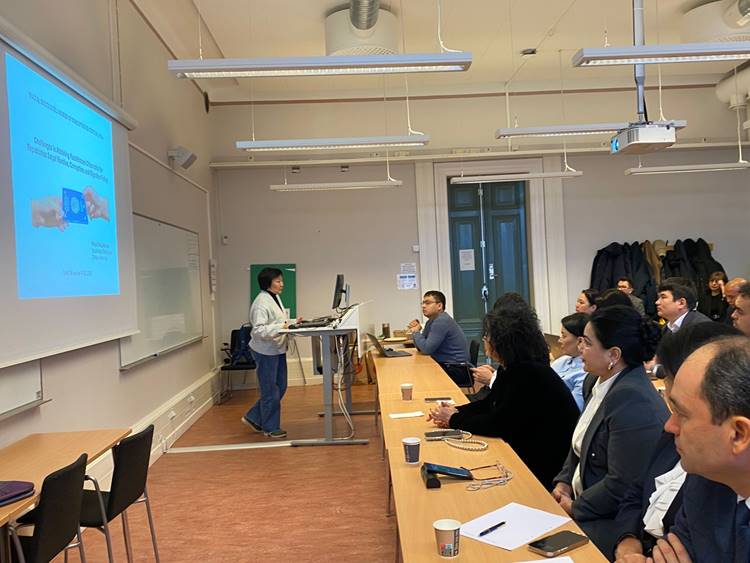
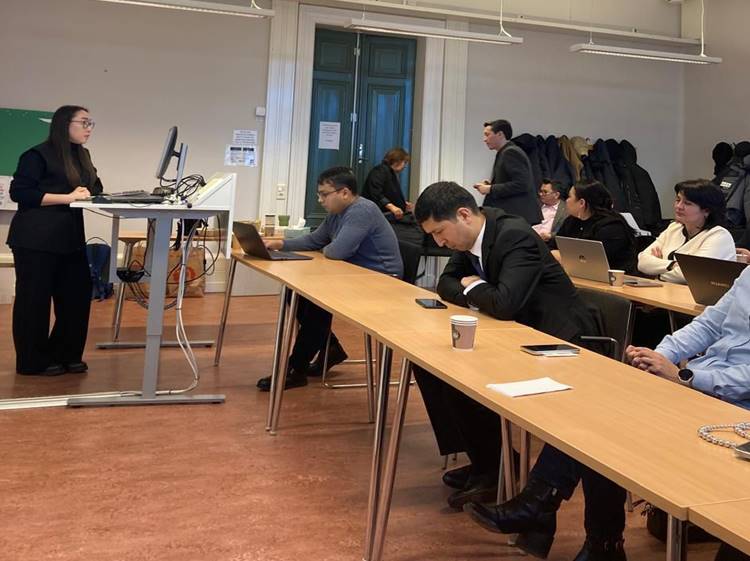
In addition, we had a great opportunity to participate in various academic activities of the Department of Sociology of Law, which was an important element of our internship. During the secondment we attended several guest lectures, seminars and workshops, which allowed us to deepen our knowledge and exchange experiences with leading experts from different countries:
– ‘The making of a pariah class: activist lawyers’ experiences of post-imperial chauvinism», Hilary Sommerlad (University of Leeds) – the seminar addressed important issues of rights of marginalised groups and human rights activism in post-imperial transformations;
– ‘MOCCA Workshop on Interdisciplinary Approaches and Methods to Understanding and Combatting Corruption: Theory, Practice and Policy-Making’, Department of Sociology of Law at Lund University;
– ‘Practical Use of AI for Researchers in Sweden’, Abderisak Adam (Chalmers University of Technology), which looked at applications of artificial intelligence in social and humanities research;
– ‘Research Seminar in Sociology of Law: Imperialism and Constitutional Law», Chris Thornhill (University of Birmingham);
– a seminar at which MOCCA project participants from Kazakhstan and Estonia made their presentations. The first was ‘Educational Governance, Corruption and Student Achievement in Post-Communist Countries’, presented by Faisal Mohammed from the Estonian Business School. The second was ‘Economic Aspects of the Impact of Corruption on Infrastructure in Kazakhstan’, presented by Dinara Rakhmatullaeva and Talifa Mansurova from the Eurasian Institute for Interdisciplinary Studies.
Participation in these events significantly broadened our scientific horizons, allowed us to get acquainted with new trends and tools of research strategy.
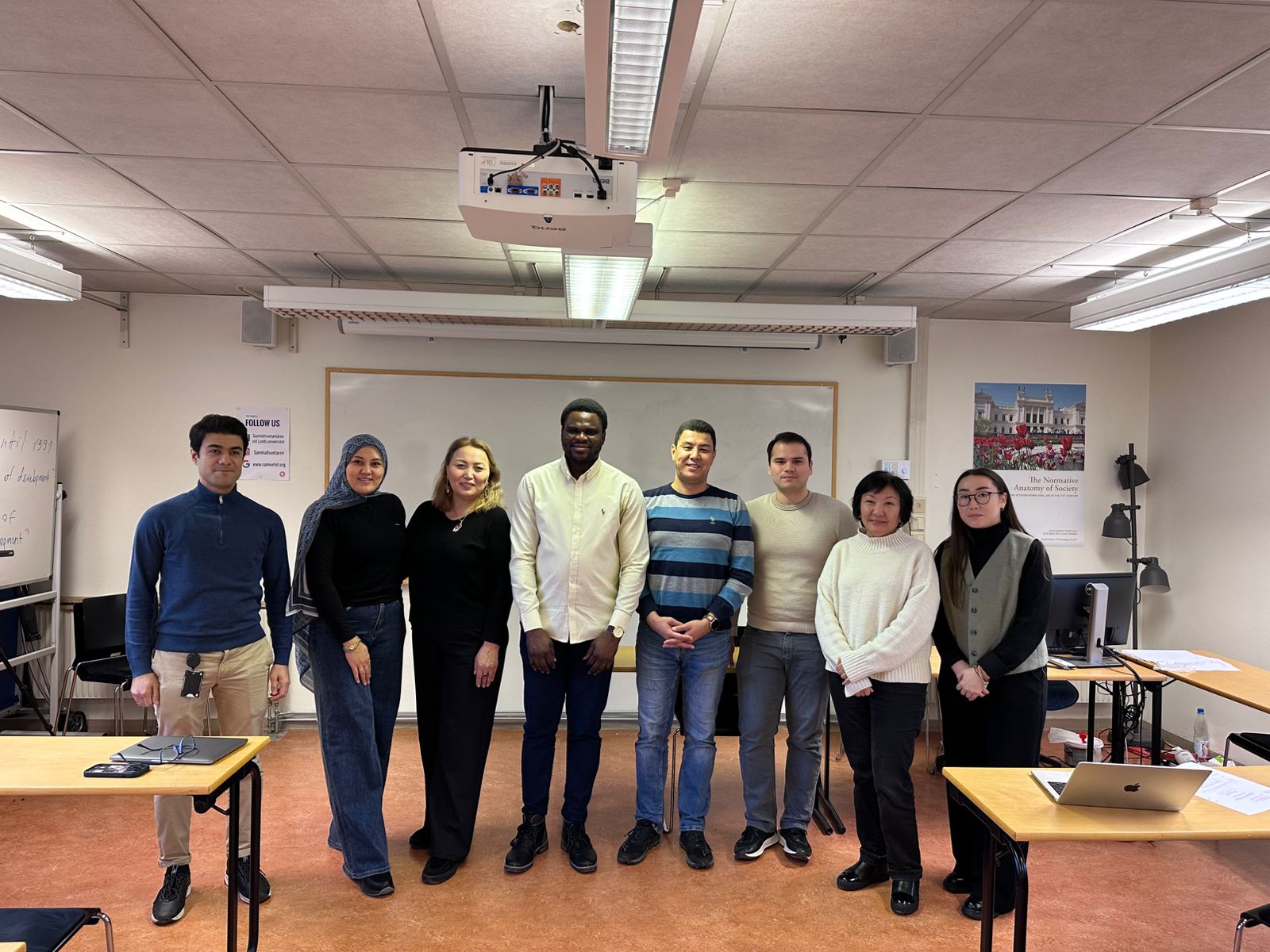
An important factor for us as researchers was the environment, first of all the people who were with us during these two months and of course the city.
The city of Lund, founded in the 10th century, located in southern Sweden, is one of the oldest and most atmospheric cities in the country, with a rich historical heritage and a unique cultural atmosphere that has created an ideal environment for scientific work. The majestic medieval buildings, the famous Lund Cathedral, picturesque parks and cosy streets of the city have created an inspiring environment that fosters creativity in solving scientific problems. Lund is not only famous for its history, but is also actively innovating in urban development, combining ancient architecture with modern technology and sustainable practices. This amazing combination of tradition and progress has become a great basis for work and personal growth. Lund is a city where the comfortable and dynamic environment, both for living and working, allowed us to focus on research, immerse ourselves in interdisciplinary studies and make the most of every moment of the secondment.
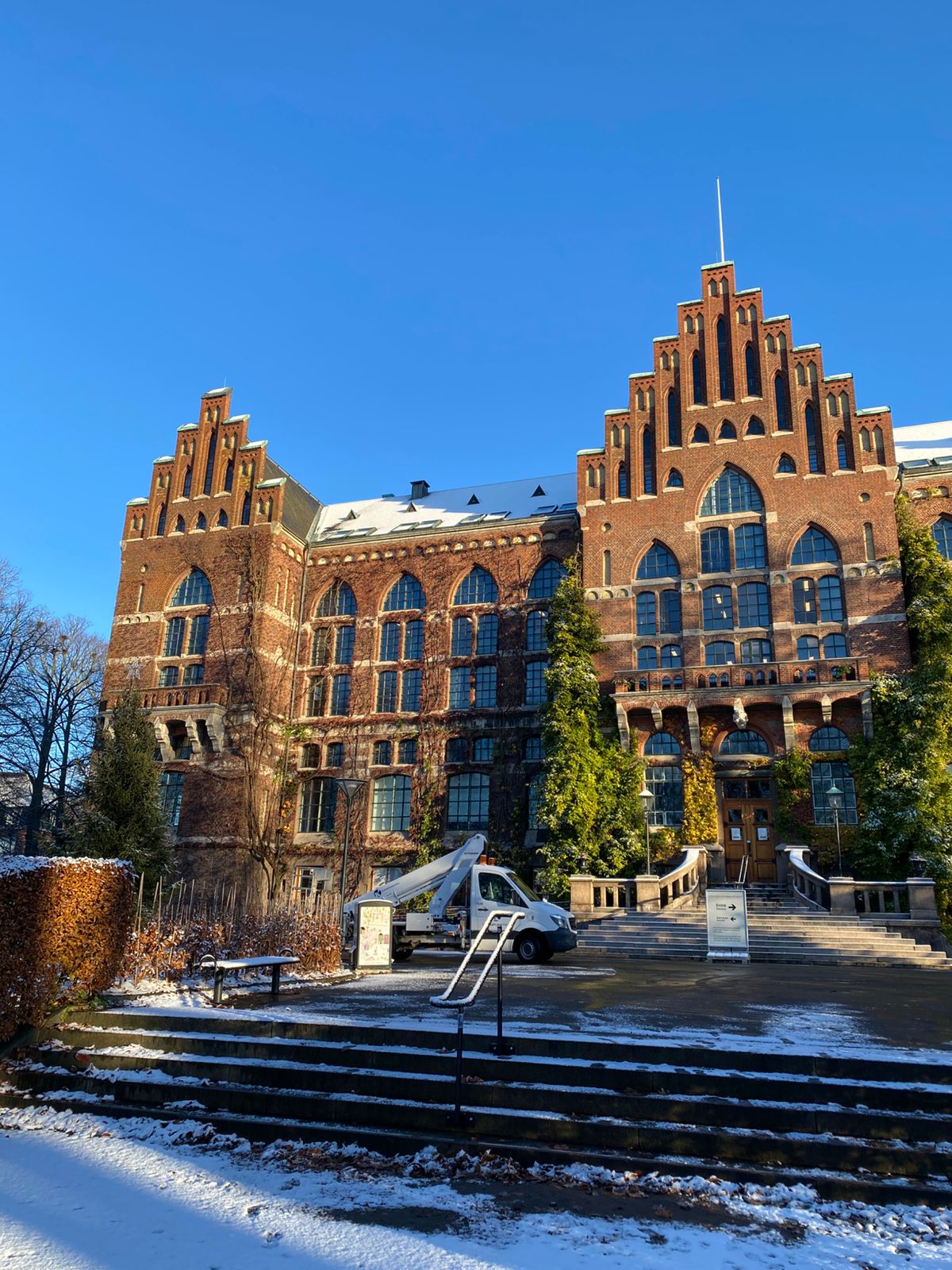
The secondment was not only an important stage in our professional development, but also a source of many inspiring moments, we found new friends and like-minded people here.
We express our sincere and deep gratitude to the Principal Investigator of Project Rustamjon Urinboyev and his whole team for excellent organisation and support at every stage of the secondment. For two months we became a part of the Department where these wonderful people work.
From the first days of the secondment, we felt how carefully every aspect of the programme had been thought through. Professor Rustamjon Urinboyev demonstrated a high level of professionalism, attention to detail and sincere interest in our research. Each of us had the opportunity to feel part of a friendly and motivated team, which was the key to our success.
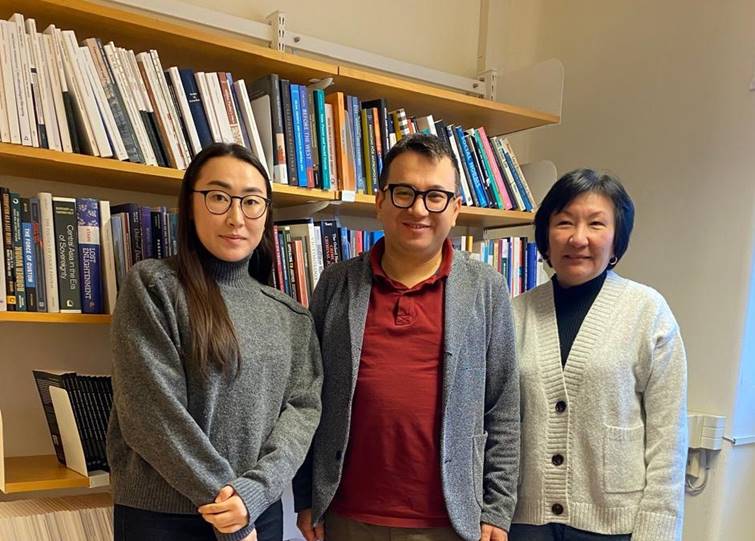
The secondment at Lund University was not only a valuable academic experience for us, but also a stage of professional growth. We came to the conviction that international co-operation and exchange of ideas are necessary to address the complex issues we face in Kazakhstan. This experience has given us new ideas that we will implement in our academic and practical activities.
In the future, we plan to apply the knowledge and skills we have gained to advance scientific research. We will actively work on publications, organise workshops and dialogues with public and political figures to ensure that our research has practical implications for improving life in our country.
